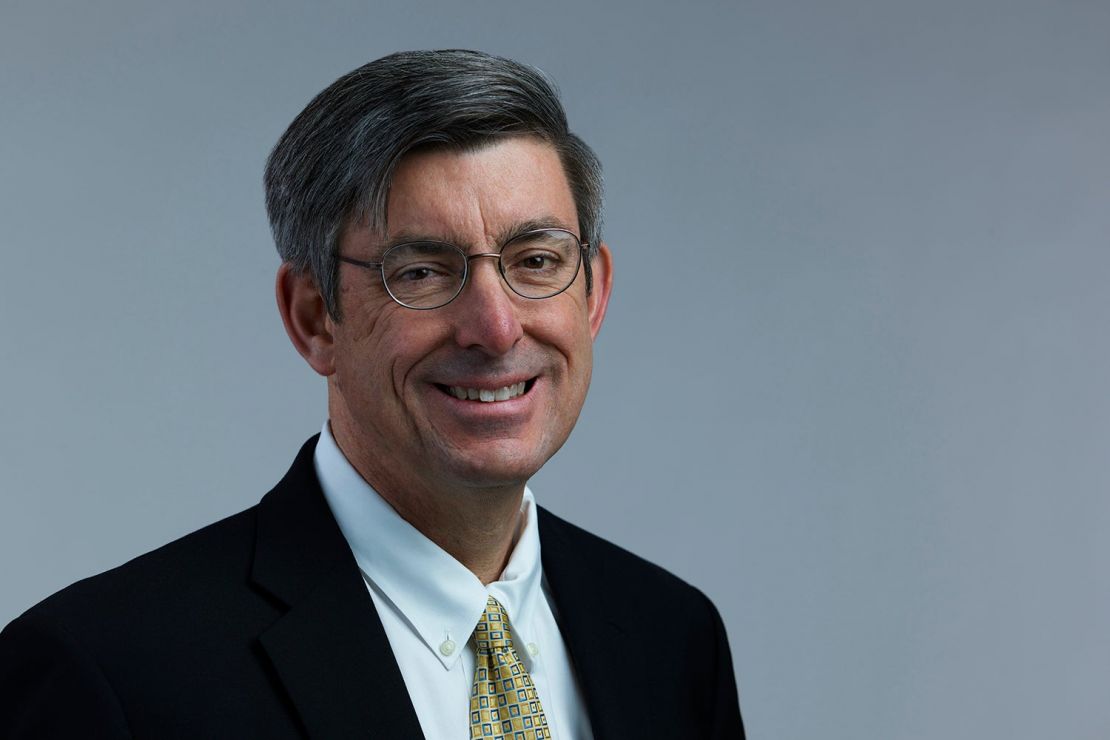Following a broad, international search, John Sarrao, deputy director for science, technology & engineering at Los Alamos National Laboratory (LANL), has been named SLAC National Accelerator Laboratory’s sixth director, Stanford University President Marc Tessier-Lavigne announced today.
Sarrao will succeed Chi-Chang Kao, who last fall announced his intention to step down after 10 years in the position. Sarrao will formally assume his position as director on Oct. 2, 2023.
“John’s experience and leadership make him an excellent choice to lead SLAC into its next chapter. The lab is a vital partner in Stanford’s research ecosystem, with unique facilities and expertise enabling us to tackle some of the most critical scientific challenges of our time,” Tessier-Lavigne said. “I want to thank the search committee for their effort and dedication, and I want to extend my deep appreciation to Stanford Vice President for SLAC Stephen Streiffer for playing an instrumental role as interim laboratory director throughout the transition.”
SLAC is operated by Stanford for the U.S. Department of Energy (DOE), and Sarrao’s appointment was made with the DOE’s approval.
“John brings proven leadership and scientific excellence to this important role,” said DOE Office of Science Director Dr. Asmeret Asefaw Berhe. “Having dedicated his career to enabling discovery and innovation within the DOE national laboratories, his leadership will advance SLAC’s mission and amplify its scientific impact.”
Sarrao comes to SLAC from LANL in New Mexico, where he serves as the deputy director for science, technology & engineering, overseeing the directorates for chemistry, Earth & life sciences; global security; physical sciences; and simulation & computation. He also stewards technology transitions at the lab and serves as its chief research officer in support of LANL’s national security mission. Prior to his current position, he held a number of leadership roles at LANL, including associate director for theory, simulation & computation and division leader for materials physics & applications.
Sarrao has a bachelor’s degree in physics from Stanford University and a master’s in physics from the University of California, Los Angeles, where he also received his PhD in physics based on thesis work performed at LANL. His primary research interest is in the synthesis and characterization of correlated electron systems, especially actinide materials. He was the 2013 winner of the DOE’s Ernest Orlando Lawrence Award for the discovery and study of novel superconductors, and is a fellow of the American Association for the Advancement of Science, the American Physical Society, and LANL.
“I’m excited and humbled to be joining the SLAC team as laboratory director,” Sarrao said. “As the laboratory enters its seventh decade, the future is very bright, building on a distinguished history of innovation and discovery and a dedicated community. I look forward to the world-leading advances we’ll make together with our partners at Stanford and in the DOE system, and I’m grateful to Chi-Chang and Stephen for their leadership.”
SLAC is a vibrant multiprogram laboratory that explores how the universe works at the biggest, smallest, and fastest scales and invents powerful tools used by scientists around the globe. With research spanning particle physics, astrophysics and cosmology, materials, chemistry, bio- and energy sciences, and scientific computing, we help solve real-world problems and advance the interests of the nation.
SLAC is operated by Stanford University for the U.S. Department of Energy’s Office of Science. The Office of Science is the single largest supporter of basic research in the physical sciences in the United States and is working to address some of the most pressing challenges of our time.
